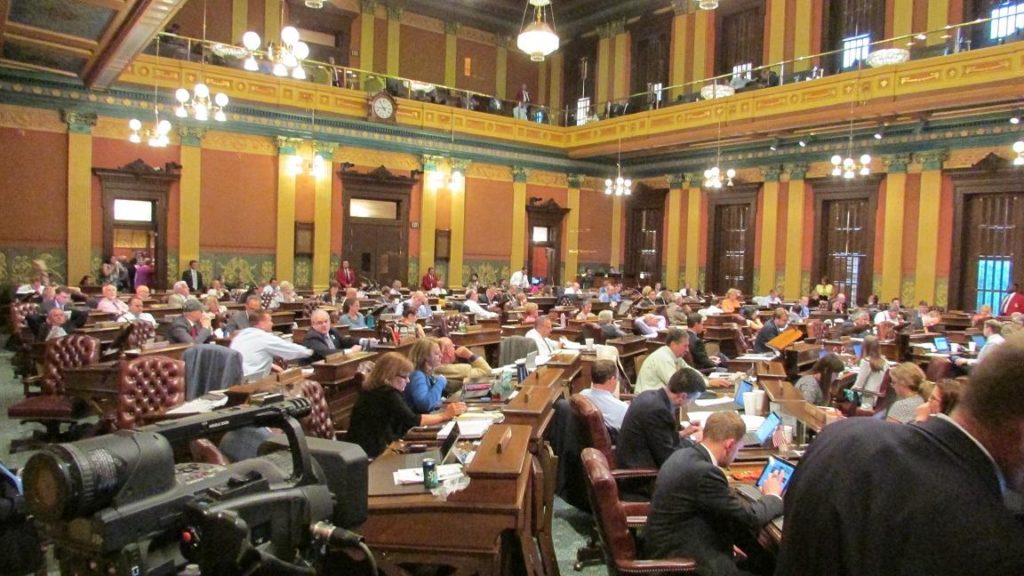Amended Michigan iGaming Bill Expected to Move Forward Soon

Michigan has been considered an important player in the future of online poker regulation in the United States, but in recent months there’s been a lack of activity from the state. On Thursday, we saw the first signs of life from the state as it appears that lawmakers are now ready to move forward with online gambling legislation.
A modified version of a bill under consideration by the House is expected to be modified soon and will likely include language that will allow sports betting. Sports betting may be the issue that allows legislation to move forward after it appears to have stagnated so far this year.
Modified Bill to Be Introduced in the House
Chris Krafcik of Gambling Compliance gave an update about the legal situation in Michigan on Thursday. He revealed the MI Rep. Brandt Iden is working on garnering votes for a revised version of the Michigan iGaming bill.
Krafcik shared that the new draft has an 8% tax on Gross Gaming Revenue and will include online sports betting for state-operated casinos in Detroit. Michigan Indian tribes will also be able to offer iGaming via an “operate-by-contract” option. The original bill, H 4926, was introduced to the Michigan House floor in December and has largely remained dormant since.
The bill was originally introduced by Iden last year and passed out of the Michigan House Regulatory Reform Committee in December by a margin of 12-3 with one abstaining. The bill in the pre-modified form has received the support of Detroit’s three commercial casinos.
Native American support of the pre-modified bill has been lacking. At best, tribes have been neutral while others outright oppose the legislation. With that said, the National Indian Gaming Association does appear to support sports betting as they oppose the federal ban on sports betting. The Supreme Court of the United States is expected to rule on the ban sometime this year, with many hopeful that the High Court will repeal the ban.
Is Sports Betting the Key to Future Legislation?
Online gambling legislation in the United States has proceeded at a slow crawl since the December 2011 memo from the US Department of Justice stating that the Wire Act only applies to sports betting. Last year, Pennsylvania became just the fourth state to regulate online gambling and they have yet to begin taking bets.
Many feel that a federal repeal of the sports betting ban will significantly change the future of iGaming legislation through the country. West Virginia has been proactive and has already passed legislation that will legalize sports betting should the Supreme Court overturn the ban.
Other states have been actively examining the issue or have submitted initial drafts of legislation surrounding sports betting. If the ban is indeed overturned, online poker stands to gain greatly as it will open the door for many states to enact iGaming.
Sports betting has the most potential for both tax revenue and gambling growth throughout the nation with many already participating in the activity either illegally or going to states such as Nevada where sports betting is legal.
The demand for legalized sports betting following a repeal of the law will result in states seriously examining iGaming. For many states, it will be just as easy to legalize and regulate most forms of iGaming than to only enact sports betting legislation. This will give players more choice, operators more revenue streams and increased tax collections for state governments.
If the Supreme Court repeals the sports betting ban, expect multiple states to quickly move forward with iGaming legislation and the number of states allowing regulated online poker to jump significantly over the next couple of years.
